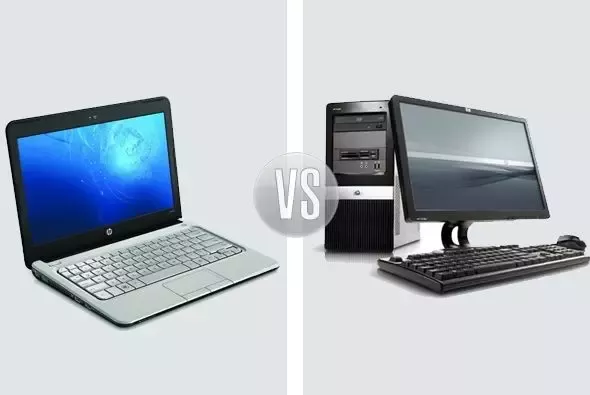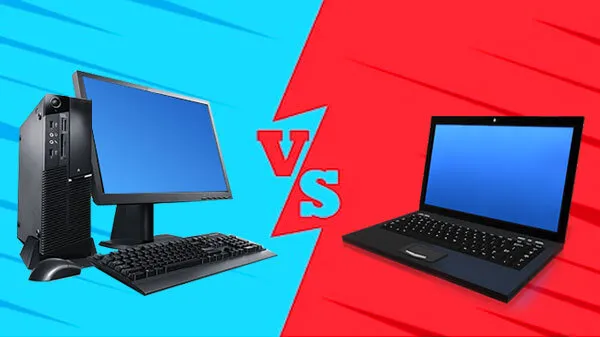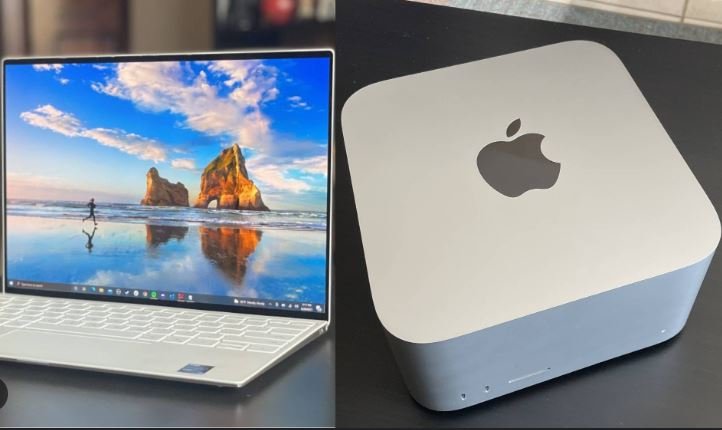When setting up a home office, one of the key decisions you’ll face is choosing between a desktop and a laptop. Both options have their own set of advantages and potential drawbacks, depending on your work needs, space constraints, and budget. This guide will help you weigh the pros and cons of desktops and laptops to determine which is the best fit for your home office.
1. Performance and Power
Desktops:
- Pros: Typically offer superior performance compared to laptops. They can accommodate more powerful processors, larger amounts of RAM, and more advanced graphics cards. This makes desktops ideal for tasks requiring significant processing power, such as video editing, 3D rendering, and gaming.
- Cons: Less portable and usually require more space. They need to be set up with separate components like a monitor, keyboard, and mouse, which can take up additional desk space.
Laptops:
- Pros: Modern laptops can offer impressive performance, especially high-end models. They are often sufficient for most office tasks, including word processing, spreadsheets, and web browsing.
- Cons: Performance can be limited by the laptop’s compact design. High-performance laptops tend to be more expensive and might have shorter lifespans compared to desktops due to heat and limited upgrade options.

2. Portability and Flexibility
Desktops:
- Pros: Once set up, desktops remain stationary, which can be advantageous if you have a dedicated workspace. They are often more ergonomic with larger screens and separate keyboards and mice.
- Cons: Not portable; moving a desktop requires disassembling and transporting multiple components.
Laptops:
- Pros: Highly portable, allowing you to easily move between rooms or take your work on the go. Ideal for individuals who might need to work in different locations or travel frequently.
- Cons: Limited screen size and ergonomic setup. Extended use on a laptop might lead to discomfort without additional accessories like external keyboards or stands.
3. Space and Setup
Desktops:
- Pros: Can be customized to fit the available desk space with separate monitors, towers, and peripherals. More room to expand and upgrade components.
- Cons: Requires dedicated space for the tower and peripherals. Can clutter a desk if not managed properly.
Laptops:
- Pros: Compact and self-contained, making them ideal for smaller spaces or shared work areas. Easy to store when not in use.
- Cons: Limited space for expansion. Small built-in keyboard and trackpad may not be as comfortable for long-term use.
4. Cost and Value
Desktops:
- Pros: Generally offer better performance for the price compared to laptops. Easier and cheaper to upgrade individual components.
- Cons: Initial setup might be more expensive due to the need to purchase separate monitor, keyboard, and mouse.
Laptops:
- Pros: All-in-one design can save on the cost of buying separate peripherals. Often includes battery power, which can be convenient.
- Cons: High-end models can be quite expensive. Upgrading components (like RAM or storage) can be more challenging and costly.
5. Upgrade and Maintenance
Desktops:
- Pros: Easier to upgrade and maintain. You can replace or add components like RAM, storage, or graphics cards. Better cooling options help prolong the lifespan.
- Cons: Requires more technical knowledge for upgrades and maintenance. Can be more cumbersome to physically access internal components.
Laptops:
- Pros: Maintenance is generally simpler with fewer internal components. Some laptops allow for easy upgrades of RAM or storage.
- Cons: Limited upgrade options compared to desktops. Repair and upgrade can be more expensive due to the compact and integrated design.
6. Conclusion
Choosing between a desktop and a laptop for your home office largely depends on your work requirements, space, and budget. If you need a high-performance machine with easy upgrades and a stationary setup, a desktop might be the better choice. On the other hand, if portability and a compact design are important to you, a laptop could be more suitable.
Assess your specific needs and preferences to make the best decision for your home office setup. Both desktops and laptops offer unique advantages, and understanding these can help you select the right computer for your work environment.











